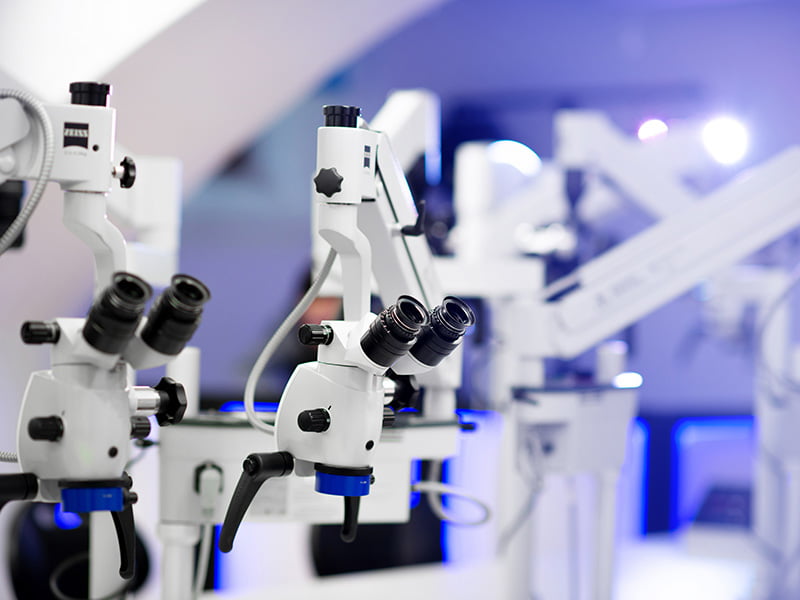Thursday February 4 is the 22nd World Cancer Day. This is particularly significant in the current climate, given the significant challenges presented by the COVID-19 pandemic for cancer professionals, organisations and patients.
The community has had to rapidly adapt, faced with suspensions in elective surgeries and treatments, catalysing major shifts in the delivery of treatment to those in need.
In addition, COVID-19 restrictions have impacted recruitment for clinical trials, delaying potential breakthrough therapies that promise to benefit thousands of cancer patients.

On the other hand, the silver lining of this challenging year was the unparalleled and spectacular scientific achievements that have led to development of several vaccines in under 12 months which would otherwise have taken several years to achieve.
Recently, federal Health Minister Greg Hunt spoke profoundly about “what we would normally achieve in 10 years, we have done in 10 days”. The COVID-19 pandemic has informed the scientific, political and wider communities of what can be achieved with strong financial investment and the backing of public interest.
With that in mind, Australia’s small but globally leading artificial intelligence community is well positioned to capitalize on the exciting advances in Artificial Intelligence (AI) and Machine Learning (ML) to help improve patient outcomes in the oncology sphere.
To achieve this, we are calling for support from the oncology community to help clinicians, policy makers and regulatory bodies understand the unrealised benefits of using AI and ML in healthcare treatments.
The first step will be for the risk-adverse life sciences industry to embrace and adopt novel innovative technologies, guided by experts in the field to ensure safe practice. We must at all times be able to explain what’s happening with the predictions our AI/ML technology is making, a concept known as “explainability”.
This week, Max Kelsen along with a group of world leading cancer researchers, released a paper demonstrating how AI can be used to unlock the transparency of ML algorithms and increase “explainability” to better understand the accuracy and reproducibility of AI tools for predicting healthcare data.
This collaborative approach enables our team to rapidly and confidently apply AI/ML in understanding cancer, whilst ensuring safety.
Exciting new research is being done at QIMR Berghofer in Brisbane to use ML to uncover insights into skin cancer. This research involves creating ‘data stability’ at a large scale and is intended to help improve clinicians’ ability to more accurately understand the incidence and behaviour of skin cancer in 44,000 patients.
Recently, the Australian National Oncology Alliance (NOA) released their goal for a 90 per cent survival rate for all Australian Cancer patients by 2030.
This world-leading project aims to take a multidisciplinary approach to oncology, including “genomics, immuno-oncology, regenerative therapy, precision therapy, radiation oncology and artificial intelligence,” according to NOA founder and Rare Cancers Australia chief executive Richard Vines.
Every day, we engage with clinicians, healthcare providers, researchers, data experts, Cloud providers (such as Google and Amazon Web Services), and PhD students to innovate in the applications of ML in cancer treatments.
With the advent of high-definition video conferencing and other tools, the once intractable distances facing us as a community are no longer an issue. This kind of collaborative, multidisciplinary approach would be unheard of in 2000, when World Cancer Day began.
There is a long way to go to fully understand cancer at the DNA-level that could enable the development of personalised treatment and expedited drug discovery.
Our global efforts and rapid multidisciplinary responses to the COVID-19 pandemic has given the oncology community valuable insights into the benefits of balancing outcome and risk, with a strong focus on community engagement and education.
For Australia to become a real-world leader in the commercialisation of AI into clinical settings, Max Kelsen and other AI/ML experts in the field need to engage with healthcare providers and earn their trust in the capability of using this cutting-edge technology to improve patient outcomes.
We see 2021 as the year when these profound changes will accelerate, for the benefit of patients, taxpayers, and Australia’s global reputation as an innovation engine.
Nick Therkelsen-Terry co-founder and chief executive officer of Max Kelsen
Do you know more? Contact James Riley via Email.
